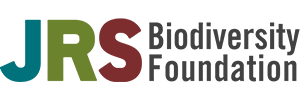The GBIF Secretariat has announced the selection of a set of 18 projects to receive funding through its Biodiversity Information for Development programme. Led by institutions representing 13 countries, the two-year projects will mobilize policy-relevant biodiversity data across a range of topics including human health, agriculture and food security, protected areas, threatened species and collections digitization.
Funding allocated for the projects totals €978,119, with 14 projects receiving €567,119 from the European Union, previously BID's sole funder. Another €411,000 in funding provided by the JRS Biodiversity Foundation will be allocated to support an additional five projects.
“Improving the linkages between science and policy is essential for raising the effectiveness of our biodiversity conservation efforts," said Florence Van Houtte, international cooperation official for biodiversity at the European Commission Directorate-General for International Partnerships. "We are encouraged to see so many African countries and institutions stepping up their capacity in that field as well as the active contributions that the BID programme is making to this dynamic community.”
Taken together, the projects will leverage €1.1 million in matching funds, while the addition of first-time grantees from Namibia, São Tomé and Príncipe, and Seychelles raise the total number of countries in sub-Saharan Africa represented in BID to 31.
This round of grants supports biodiversity data mobilization at regional (3), national (6) and institutional (5) levels as well as a new grant type for the programme. Five data-use grants will build on existing relationships between data-holding institutions and decision-makers to provide data solutions responding to specific policy needs. Collectively these projects will advance the goals of the BID programme by increasing the availability and use of biodiversity information in research and policy for sub-Saharan Africa, the Caribbean and the Pacific.
"The JRS Biodiversity Foundation is proud to support the funding of five outstanding BID projects that advance open-source informatics in sub-Saharan Africa," said JRS executive director Matthew Cassetta. "The complementarity of our objectives with those of GBIF and the European Union represents a remarkable convergence of purposes to greatly expand scientific knowledge platforms in Africa. We are certain that the investment of JRS and our partners in critical capacity-building and biodiversity information will be instrumental to African researchers and policy makers as they take action safeguard the invaluable natural wealth of the continent."
"We are delighted to welcome the JRS Biodiversity Foundation as a partner in BID," said Joe Miller, GBIF executive secretary. "Their long history of support of biodiversity informatics in Africa combined with additional funding from the European Union has enabled us to expand the programme and fund more proposals in this round of grants—something we hope further partnerships will build on in coming years."
An expert panel selected these projects during the course of a two-step process, which initially drew 215 concept notes from 39 of the 48 eligible countries in sub-Saharan Africa. The final choices were made from a slate of 34 applicants from 20 countries invited to submit full proposals.
The projects will build on the impact of BID’s first phase, which mobilized more than 1.3 million records relevant to the regions’ priority policy needs and established communities of practice across sub-Saharan Africa, the Caribbean and Pacific thanks to a rigorous, replicable training curriculum.
The projects will kick off this week with a regional workshop on data publication, and an invitation-only regional training workshop for coordinators of data-use projects will follow on 27 May 2021. The GBIF Secretariat expects to announce the selection of additional sets of projects in the Caribbean and Pacific later this summer.
BID projects funded by the European Union
BID projects funded by JRS Biodiversity Foundation
 This programme is funded by the European Union.
This programme is funded by the European Union.
 This programme is funded by JRS Biodiversity Foundation.
This programme is funded by JRS Biodiversity Foundation.